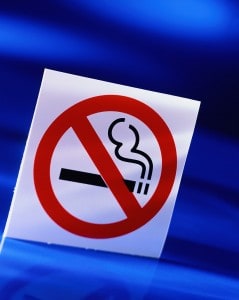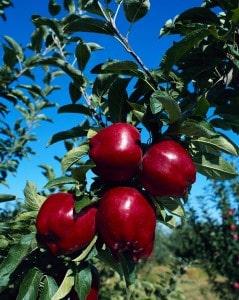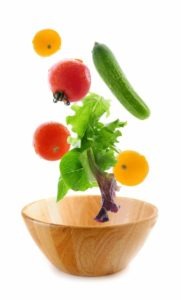 Q. I have recently started to try to eat healthier–but Ramadan is around the corner. This is the Muslim month where from sunrise to sunset we abstain from food and drink. Ramadan gives Muslims a time to focus on spirituality. However, this is also the month where diets go to ruin! We wake up early in the morning, have a meal and then the next meal is after sunset. By then you’re so hungry that you end up eating a lot of fried foods and really rich foods. Could provide some tips on how to maintain healthy eating when fasting?
Q. I have recently started to try to eat healthier–but Ramadan is around the corner. This is the Muslim month where from sunrise to sunset we abstain from food and drink. Ramadan gives Muslims a time to focus on spirituality. However, this is also the month where diets go to ruin! We wake up early in the morning, have a meal and then the next meal is after sunset. By then you’re so hungry that you end up eating a lot of fried foods and really rich foods. Could provide some tips on how to maintain healthy eating when fasting?
A. Although I realize that Ramadan fasting is primarily for spiritual purposes, there may actually be some health benefits as well! Research shows that short fasts, lasting anywhere from 20 to 36 hours can in fact reduce some risks for heart disease and diabetes–and maybe even cancer. See also my article on Benefits of Fasting
But to maximize the potential benefits of fasting, it is important to eat as healthfully as possible when you break your fast. I realize that can be challenging when the nightly Ramadan feasts feature so many less-than-healthful holiday treats!
Here are my best tips for navigating through the shoals:
Stay hydrated. Those fasting for Ramadan usually go without water throughout their fasts. Although no lasting harm appears to come from it, they do often end up somewhat dehydrated. That’s why Ramadan feasts traditionally begin with fruit, soups, and other hydrating foods. These foods also help decrease the urge to binge on other, less-nutritious foods.
Forego vigorous exercise while fasting. A brisk walk is fine but it’s not a good idea to run a marathon or swim the English Channel on a day when you’re not eating as much as usual.
Exercise caution when driving or operating heavy machinery. In Muslim countries, car accidents tend to go up during Ramadan. Then again, that may not be all due to the fasting. A good bit of it may be due to sleep deprivation. Families and friends often gather to break the fast and visit until the wee hours—then get up early for another meal before the fast begins again.
Optimize your nutrition. When you break your fast in the evenings, it’s okay choose foods that are higher in fat and calories–after all, you have to fit an entire day’s calories into just a few hours. But try to focus on foods that are nutritious as well as calorie-dense–such as nuts, avocados, cheese, meat, and so on. Salads, fruits, and juices are nutritious and can help replenish lost fluids. In the morning, try to be up early enough to grab a good-sized healthy meal (and lots of water) before the fast begins.
And finally, it’s OK to enjoy some of the special foods that accompany this this special observance…even if they’re not super healthful. Just exercise some moderation and be ready to resume your new, healthier eating habits when the festival is over.
 Q. I have a friend who just quit smoking. He’s started to gain the typical weight and went into his local GNC yesterday to get some supplement that’s supposed to speed up his metabolism. He already has a fairly good diet. I told him he might be better off just letting his metabolism balance itself out, rather than substituting one stimulant for another. Any ideas on how he can naturally adjust better?
Q. I have a friend who just quit smoking. He’s started to gain the typical weight and went into his local GNC yesterday to get some supplement that’s supposed to speed up his metabolism. He already has a fairly good diet. I told him he might be better off just letting his metabolism balance itself out, rather than substituting one stimulant for another. Any ideas on how he can naturally adjust better? 
 Happy Earth Day!
Happy Earth Day!



